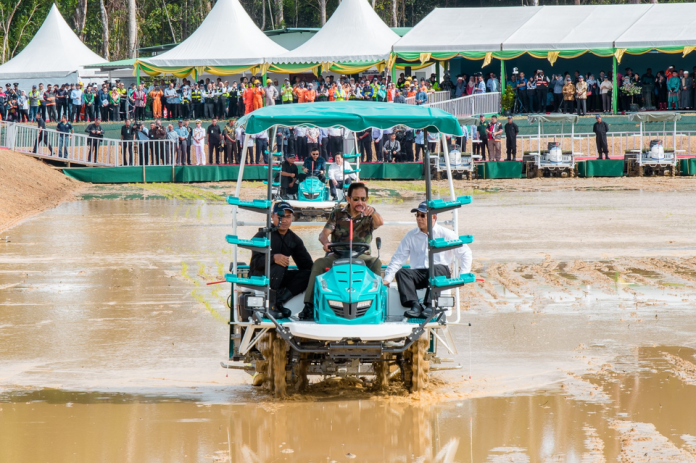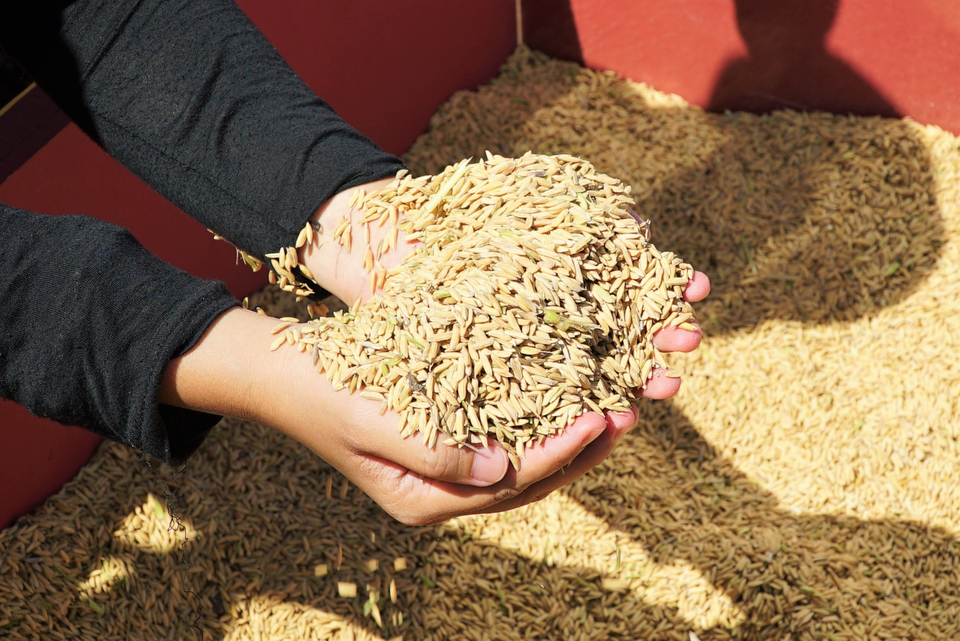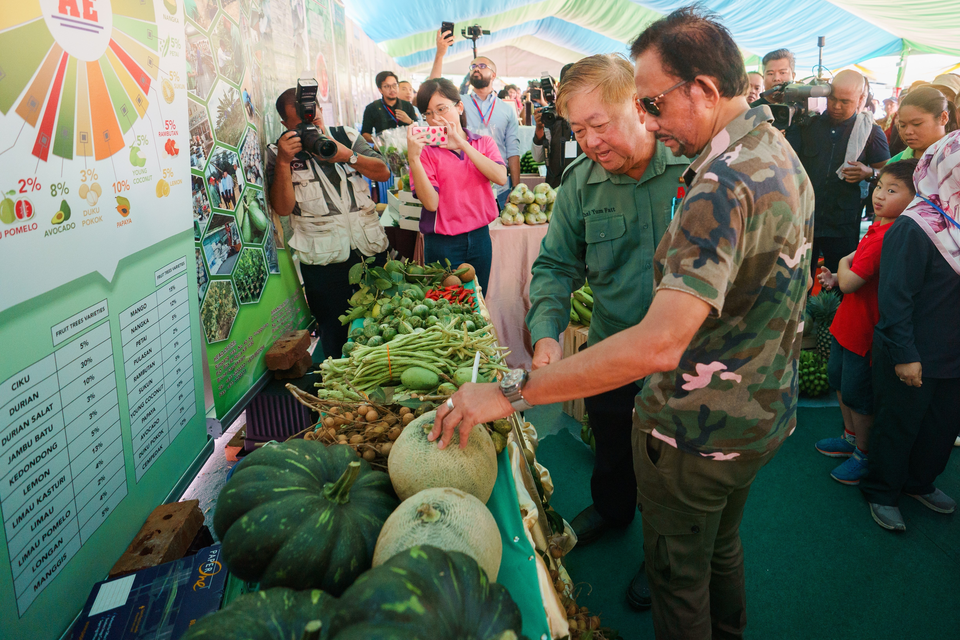
His Majesty the Sultan and Yang Di-Pertuan of Brunei Darussalam officiated the first planting season at Brunei’s newest – and soon to be biggest – rice farm in Kandol earlier today, which is expected to produce between 6,000 to 8,000 tonnes of paddy annually by 2025.
The 500-hectare rice farm located in Belait’s rural south is estimated to contribute 11% to 15% of Brunei’s rice requirements once fully operational, by focusing on cultivating Brunei’s highest yielding hybrid varieties; beginning with Sembada188 – capable of yielding six tonnes per hectare, followed by Titih – which can yield eight tonnes per hectare.
The Agricultural Development Area (KKP) of Kandol will be operated by a new, wholly government-owned company under Darussalam Assets called PaddyCo.
The first plots being farmed in Kandol measure 8.23 hectares, 5.23 which will be managed by PaddyCo, while the remaining three will be done as a trial collaboration with Indonesia’s Syarikat PT. Biogene Plantation, who produce the Sembada188 seedlings which were first planted in Wasan in October last year.
Biogene will also serve as PaddyCo’s overall technical partner for three planting seasons, with a potential joint venture between both parties depending on the outcome of trials.
Paddy Operations Manager at PaddyCo Fuziah Hj Hamdan said the first phase of Kandol spanning 20 hectares would be complete by the end of this year. The remaining 480 hectares would be developed by 2021, with full productivity targets realized by 2025.

Fuziah said cultivating rice in Kandol – a former rainforest that has only recently been cleared – would require several planting seasons for the overall soil and surrounding ecosystem to adjust.
“Initially (we predict yields) of half a tonne to one hectare, (but) over four years and eight seasons, we are predicting it to increase (subsequently with each cycle); next two tonnes, then three and a half tonnes (and so on) until six to eight tonnes,” said Fuziah.
“There are natural predators, pests.. that will (eventually) displace as the land is opened up (jungles are increasingly cleared). The ecosystem takes time, and the soil (though better than other areas) is still (relatively) acidic.”
The Department of Agriculture and Agrifood (DAA) previously said that Kandol was selected through research that identified the area’s composition being made up of a finer-grained fertile soil which carries alluvial sediment deposited from water flooding over.
Fuziah said that a thousand-hectare area further south in Buau has also been scouted for rice farming in the future, to be pursued most likely after Kandol has been fully developed. She added that PaddyCo’s current workforce of six is 100% local, four who are farmhands recruited from the surrounding community, with more job openings expected as more land is readied for farming.

Brunei’s rice production has remained relatively unchanged over the past three years, staying within the range of 1,500 tonnes, which is around 5% of national rice self-sufficiency. The Sultanate continues to require over 30,000 tonnes of rice imported from its ASEAN neighbours annually.
The Minister of Primary Resources and Tourism (MPRT) YB Dato Seria Setia Hj Ali Apong previously said that self-sufficiency can increase to 10% by next year by optimising the existing 1,000 hectares being actively farmed in Brunei – only half which has access to irrigation.
This includes planting new strains and upgrading expanding the capacity of the Imang Dam which supplies water to nine rice fields in Brunei-Muara.
Currently, the vast majority of locally produced paddy rice is sold to the government under a “buy-back” scheme at $1.60/kg. The government then mills paddy into rice – which sheds 65% of its weight – and sells it at $1.15/kg to retailers to keep it competitively priced against imported rice. The government also offers a 50% subsidy on commonly used fertilizers, pesticides and basic equipment.












